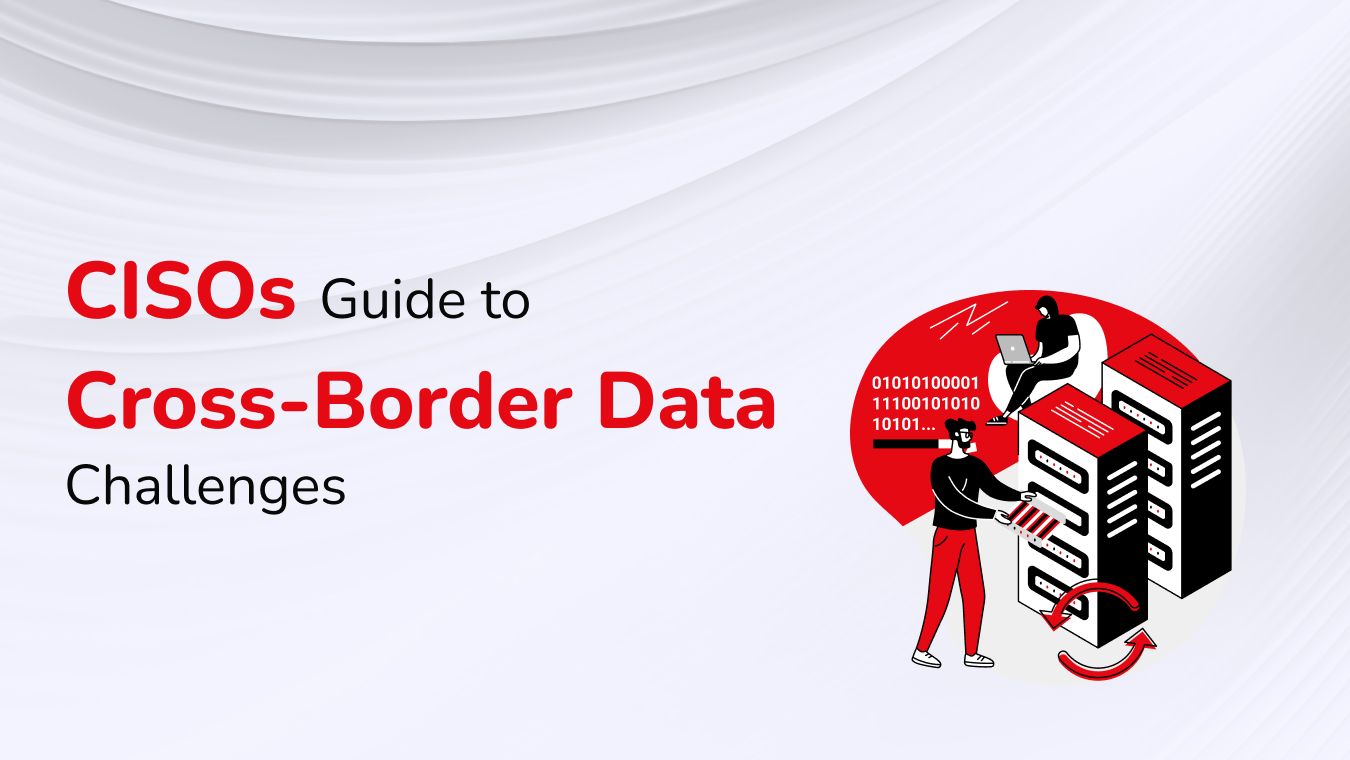Cross-Border Data Challenges Solved: A Practical CISO’s Guide to DPDPA
In today’s interconnected digital world, Personal data moves across the countries very often. Especially in cases like when companies use global cloud services and if they process any customer data in different locations. Considering all these scenarios rules on how this data can be shared across borders are changing rapidly.

India’s DPDPA law got introduced in 2023 which sets strict rules on how companies can store, process and transfer the personal data to other countries especially with Indian citizen’s personal data. Due to this CISOs must revisit their cross-border data strategies to comply with this law. This law also recommends the CISOs to implement the controls that protects the data privacy as the cross-border data transfers become more intensified. This blog will outline some of the key challenges that helps CISO’s to navigate cross-data management under DPDPA.
India’s DPDPA allows the personal data of the Indian citizens outside India to only to those countries or territories which are specifically notified by the Central Government of India. This is basically called as whitelisting the countries which will empowers the government to authorize certain jurisdictions for cross-data transfers by considering factors such as national security, data protection related standards, etc.
The DPDPA has some important rules about sending personal data outside India:
- Only certain countries are allowed: You can only send the data to those countries which are officially approved by the government and government will make a list of these approved countries. This strategy is very much different from some of other famous laws like GDPR.
- Consent alone is insufficient: Even if the user is genuine and has valid user consent, still transfers data to certain countries which are not on the whitelist would violate the act.
- Safeguards must be demonstrable: Companies must have to implement controls like encryption and legal agreements to show data is being handled safely and only being used for the legitimate purposes.
- Uncertainty in Approved Jurisdictions:
At this moment, the Indian government hasn’t shared any approved countries list. The absence of this whitelist or approved countries list creates uncertainty. In order to tackle this challenge, it’s better to build your systems in such a way that keeps personal data inside India which is called as Data Localization. It is recommended to use the cloud providers that have data centres in India which eventually make sure that this setup can easily separate the Indian data from other countries data, this strategy makes us compliant even if the rules change in future. - Contractual and Legal Compliance Gaps:
For Data handling purposes many companies have contracts called Data Processing Agreements or DPAs with other companies. But some of these contracts follow the outdated principles like these contracts follows foreign laws and were written long time ago which might not include the clauses or rules of the India’s new law for the data protection i.e. DPDPA. To tackle this challenge, the recommendation is to go through all contracts with third-party vendors and suppliers especially those, who are present outside of India. Updating these contracts by including the DPDPA rules like not sending personal data to other countries unless it is legally allowed to. - Implementing Technical Controls:
Even if the company follows or has the strong agreements or written policies that follows the DPDDA, still that won’t be sufficient to protect the personal data. Instead to add an extra layer of protection the organizations need technical controls which will safeguard the company’s data. Without using these tools, there might be a chance that data might be sent to the wrong destinations. To tackle this challenge, using tools like DLP (Data Loss Prevention) or encryption-based tools or even SIEM tools.
To mitigate risks related to cross-border transfers and also to meet the requirements of DPDPA, the CISOs should implement a well-defined structured approach. Below are some of such actions that should be taken by the CISOs:
- Assessment of Data Assets: It is recommended to identify what types of personal data are being processed and where this data is being stored and what are the locations it is transferred to, gathering all these data would help you know exactly what you’re working with and where risks may exist.
- Policy Development and Alignment: Ensure that your organisation’s privacy policies, standard operating procedures and contractual agreements are aligned with the DPDPA. If your organisation follows any global data protection standards or laws like GDPR, then it is recommended to comply with these international standards as well to streamline governance.
- Establishment of a Transfer Register: Maintaining a proper structured register that lists every time personal data is sent to another country that should include the details like why this data was sent and what kind of protections were in place and who receives this data. Because this eventually helps show auditors that your company is being responsible.
Getting DPDPA compliance right isn’t just about ticking boxes, it’s about understanding how the law applies to your specific business and putting practical systems in place. That’s where Azpirantz can really make a difference.
Our team works closely with organizations to simplify complex privacy requirements and build solutions that actually work in real-world scenarios. From setting up consent flows to preparing for audits, we help you stay compliant without slowing down your operations.
Need support getting started?
Explore India DPDPA Consulting Services
*This content has been created and published by the Azpirantz Marketing Team and should not be considered as professional advice. For expert consulting and professional advice, please reach out to [email protected].
We're Here To Help